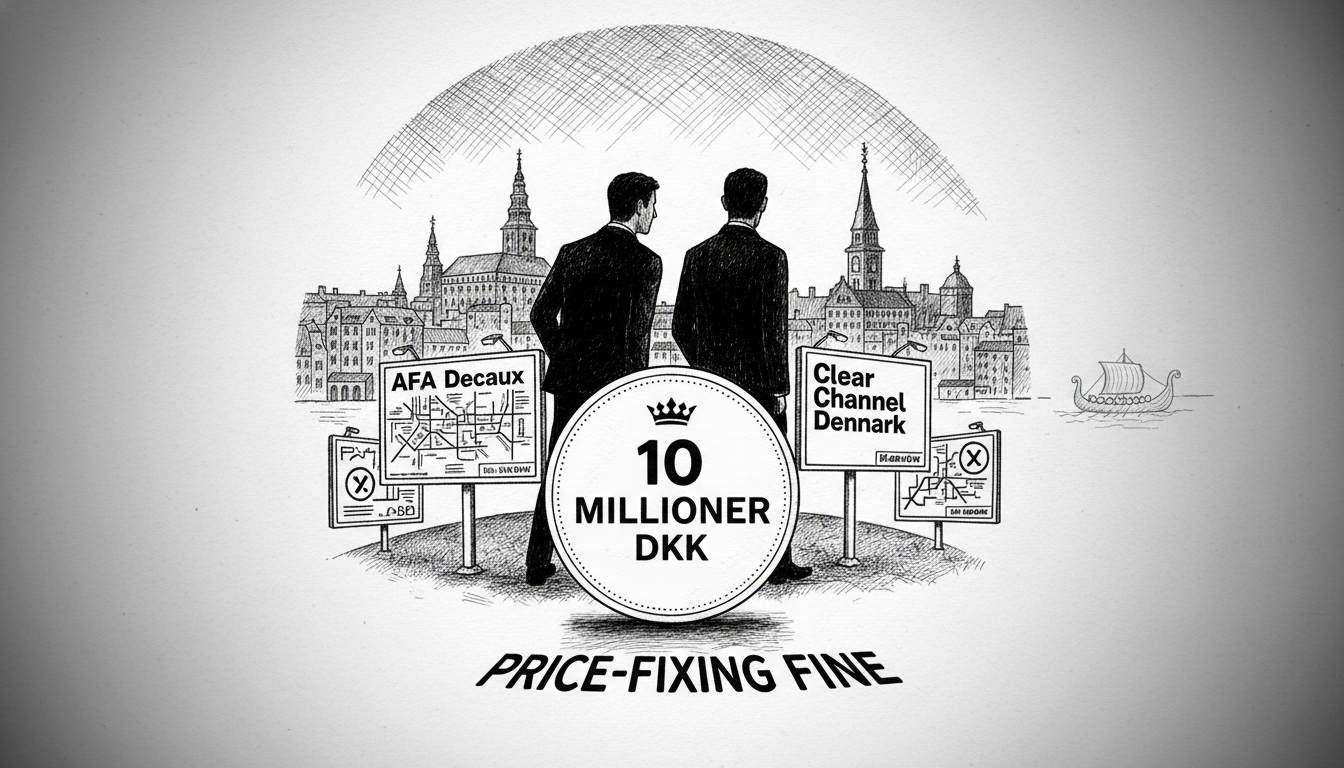A leading outdoor advertising company has accepted a substantial penalty for illegal market coordination. AFA Decaux will not appeal a ten million kroner fine imposed for price-fixing violations in Denmark's outdoor advertising market.
The Copenhagen City Court ruled against the company in late October for coordinating discount rates with competitor Clear Channel Denmark. Both companies maintained illegal agreements about customer pricing for more than six years.
These practices affected advertising spaces across transportation networks. This included bus stops, train stations, and airports throughout Denmark.
Denmark's competition law strictly prohibits such coordination between competitors. Companies must independently set prices to ensure fair market competition. The National Unit for Special Crime investigated the case and brought it to court.
Clear Channel Denmark avoided court proceedings by admitting guilt earlier this year. The company paid a six million kroner fine in April.
Tine Rønde, deputy director of the Danish Competition and Consumer Authority, described the behavior as serious and prolonged. She emphasized that such violations undermine market fairness.
Special prosecutor Jan Østergaard expressed satisfaction with the court's decision. He noted that price agreements between competitors represent serious legal breaches.
The case highlights Denmark's strict enforcement of competition rules. Danish authorities consistently pursue companies that manipulate market conditions.
This enforcement benefits both consumers and businesses. Fair competition typically leads to better prices and service quality.
The outdoor advertising market in Denmark represents substantial commercial value. Major companies compete for contracts with municipalities and transportation authorities.
Price coordination between major players distorts this competitive landscape. Smaller companies face unfair disadvantages when market leaders collude.
International readers should understand that Nordic competition authorities maintain rigorous oversight. Similar cases have occurred in Sweden and Norway involving various industries.
The deadline for appealing the Copenhagen court's decision passed in early November. AFA Decaux's acceptance makes the fine final.
This case demonstrates that even established market leaders face consequences for anti-competitive behavior. The substantial penalty serves as a warning to other companies considering similar arrangements.
What does this mean for Denmark's advertising market? The ruling reinforces that competition laws apply equally to all market participants. Both domestic and international companies operating in Nordic countries must comply with strict competition regulations.
Danish competition law violations can result in fines up to ten percent of annual revenue. The current penalty reflects the seriousness of the violation while remaining proportionate.
Market coordination cases typically involve complex evidence gathering. Authorities must prove deliberate communication between competitors about pricing strategies.
The outdoor advertising sector has faced scrutiny in other European markets too. Similar cases have emerged in Germany and the United Kingdom in recent years.

